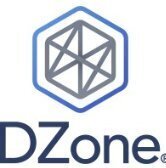Search the Community
Showing results for tags 'workflows'.
-
ETL, or Extract, Transform, Load, serves as the backbone for data-driven decision-making in today's rapidly evolving business landscape. However, traditional ETL processes often suffer from challenges like high operational costs, error-prone execution, and difficulty scaling. Enter automation—a strategy not merely as a facilitator but a necessity to alleviate these burdens. So, let's dive into the transformative impact of automating ETL workflows, the tools that make it possible, and methodologies that ensure robustness. The Evolution of ETL Gone are the days when ETL processes were relegated to batch jobs that ran in isolation, churning through records in an overnight slog. The advent of big data and real-time analytics has fundamentally altered the expectations from ETL processes. As Doug Cutting, the co-creator of Hadoop, aptly said, "The world is one big data problem." This statement resonates more than ever as we are bombarded with diverse, voluminous, and fast-moving data from myriad sources. View the full article
-
- etl
- automation
-
(and 1 more)
Tagged with:
-
This post demonstrates a proof-of-concept implementation that uses Kubernetes to execute code in response to an event. View the full article
-
- event-driven
- workflows
-
(and 3 more)
Tagged with:
-
You can now run graph analytics and machine learning tasks on graph data stored in Amazon Neptune using an open-source Python integration that simplifies data science and ML workflows. With this integration, you can read and write graph data stored in Neptune using Pandas DataFrames in any Python environment, such as a local Jupyter notebook instance, Amazon SageMaker Studio, AWS Lambda, or other compute resources. From there, you can run graph algorithms, such as PageRank and Connected Components, using open-source libraries like iGraph, Network, and cuGraph. View the full article
-
AWS Step Functions now supports the synchronous executions of Express Workflows, allowing you to easily build web-based applications and orchestrate high-volume, short-duration microservices. View the full article
- 1 reply
-
- aws
- step functions
-
(and 1 more)
Tagged with:
-
Forum Statistics
43.2k
Total Topics42.5k
Total Posts
.png.6dd3056f38e93712a18d153891e8e0fc.png.1dbd1e5f05de09e66333e631e3342b83.png.933f4dc78ef5a5d2971934bd41ead8a1.png)

